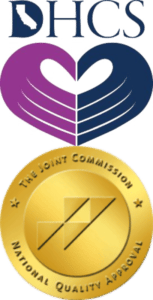Staying Sober During the Holidays
Table of Contents
Table of Contents
What Does Sobriety Mean?
People often talk about sobriety as if it’s an all-or-nothing proposition. You’re either sober or not, end of the story. But in reality, sobriety is a spectrum. There are different levels of sobriety, and what counts as “sober” can vary from person to person.
For some people, sobriety means abstaining from all drugs and alcohol. For others, it may mean avoiding certain substances or using them only in moderation. And for some people, sobriety is less about avoiding substances altogether and more about being mindful of how they use them.
Regardless of the level of sobriety you’re aiming for, the important thing is that you’re making a conscious choice to be mindful of your substance use. Whether you’re abstaining completely or just trying to be more mindful of your drinking, sobriety is a personal journey that looks different for everyone.
A few key components are essential for maintaining a healthy and successful recovery. First and foremost, sobriety requires honesty with yourself about your drug use and taking responsibility for your actions. Second, sobriety requires commitment to stay sober and follow through on that commitment. Finally, sobriety requires effort putting in the work to make changes in your life and sticking to those changes even when they are difficult.
If you are struggling with addiction, sobriety may seem impossible. Here are some statistics on being sober, as well as tips on how to stay sober during the holidays.
Statistics on Being Sober
- It's no secret that alcohol can harm your health. Excessive drinking can lead to many problems, including liver damage, heart disease, and cancer. It's also been linked to premature death and disability.
-
Alcohol is the leading risk factor for premature mortality and disability among those aged 15 to 49.(2)
-
Alcohol is estimated to cause 2.2% of all female deaths globally and 7.1% of all male deaths yearly.(1)
-
Worldwide, about 3 million deaths occur annually because of alcohol abuse.(1)
-
Excessive alcohol use costs the U.S. economy an estimated $249 billion annually - with most of these costs (77%) attributed to binge drinking.(3)
-
Alcohol is a factor in the deaths of thousands of people younger than 21 in the United States each year.(4)
-
According to the National Institute on Alcohol Abuse and Alcoholism, about 15 million adults in the United States suffer from alcohol abuse or dependence. Of these, only about 1.2 million receive treatment each year. (5)
Holidays that Challenge Sobriety
There are many holidays throughout the year that can be difficult for people who are trying to stay sober. Here are some of the most challenging holidays:
New Year's Eve
New Year’s Eve is often a difficult holiday for people who are trying to stay sober. The pressure to drink can be intense, and the temptation to celebrate with a glass of champagne can be strong. However, for people in recovery, it can remind them of all the negative things that happened in the past year.
Christmas
Christmas is a time when family and friends get together. Unfortunately, there is often a lot of alcohol available at parties and family gatherings, and it can be difficult to resist the temptation to drink.
Thanksgiving
This holiday is all about food and family. For people in recovery, it can be hard to resist the temptation of alcohol when it’s present at the dinner table. Often, people in recovery will have to deal with family members who are drinking. This can be a difficult situation, but it’s important to remember that you don’t have to drink just because others are.
Fourth of July
The Fourth of July is a time for barbecues and beer. The temptation to drink beer at BBQs and parties can be strong, and the fireworks can trigger anxiety or flashbacks for those who have experienced trauma.
Nevertheless, there are many ways to stay sober during these holidays. Attending AA meetings, spending time with sober friends, and focusing on self-care are only a few steps to remaining sober during such holidays.
Why Is It Hard to Stay Sober Over the Holidays?
The holidays are a tough time to stay sober. For many people, the holiday season is a time to relax and let loose. There’s an increased focus on family, friends, and festive activities, all of which can trigger memories of past drinking or drug use. Add to that the pressure of gift-giving and attending parties, and it’s no wonder that so many people struggle to stay sober during the holidays.
Additional reasons include the following:
Increased pressure to drink
Whether it’s peer pressure from friends or family members who are drinking, the holidays can be a difficult time to say no. In most cases, people give in to the pressure and drink, even if they’re not planning to.
Availability of alcohol
There is also the fact that many holiday celebrations revolve around alcohol. It can be hard to avoid drinking from office parties to New Year’s Eve celebrations. Also, families and friends take this time to stock up on their favorite alcoholic drinks, which can make it tempting to drink.
Stress
The holidays can be a stressful time for many people. From financial stress to family conflict, the added stress can make it more difficult to resist the temptation to drink. Holiday stress can trigger a relapse. Such triggers can be emotional (e.g., loneliness, anxiety, depression) or physical (e.g., fatigue, poor sleeping habits).
Moreover, people in recovery may have a harder time during the holidays because they’re not used to dealing with stress without alcohol or drugs.
How to Stay Sober During their Holidays
The holidays are a time for family, friends, and fun. But people in recovery can also be a time of temptation and relapse. So here are some ways to stay sober during the holiday season.
Avoid trigger foods and drinks
Just like certain people and places can trigger a craving for drugs or alcohol, certain foods and drinks can also be triggers. If you know that eggnog makes you want to drink, then don’t have any around the house. And if you’re going to a party with alcohol, eat something beforehand, so you’re not tempted to drink on an empty stomach.
Find a sober friend
It can be helpful to have someone to lean on during the holidays. If you’re feeling tempted, reach out to a friend in recovery or your sponsor. They’ll understand what you’re going through and can offer encouragement. This will help you stay accountable and feel less alone.
Stay busy
The holidays can be stressful, but stay as busy as possible. Volunteer at a local soup kitchen, go ice skating with friends, or start a new holiday tradition with your family. The more you keep your mind off drinking, the less likely you will relapse.
Have an exit plan
If you find yourself in a situation where everyone is drinking, and you’re feeling tempted, it’s important to have an exit plan. For example, say you must use the restroom or step outside for fresh air. Once you’re away from the group, call a friend in recovery or your sponsor and tell them what’s happening. They can talk you through the urge to drink and help you devise a plan to stay sober.
Use the 12-step programs
Twelve-step programs like Alcoholics Anonymous can be extremely helpful during the holidays. Attending meetings will remind you why you’re staying sober and give you tools to deal with temptation when it arises.
The holidays don’t have to be difficult for people in recovery. By following these tips, you can stay sober and enjoy all the season offers.
What to Do in Case of A Relapse
A relapse can be defined as a return to drug use after a period of abstinence. It can be a difficult and frustrating experience, but it is important to remember that it is not a failure.
A relapse does not mean that you are weak or that you have failed. It is simply a part of the recovery process. It can be a difficult and emotional experience, but it doesn’t have to be the end of your recovery.
Here are some tips on what to do if you find yourself slipping back into old patterns:
1. Take a step back and assess the situation
What led to the relapse? What triggers are present? Identifying these factors can help you avoid them in the future. By assessing and thinking about everything, you are able to see and judge things as they should be.
2. Talk to someone who understands
Whether it’s a friend, family member, therapist, or recovery sponsor, talking about what you’re going through can help you process your feelings and develop a plan to get back on track.
3. Increase self-care
When you experience a relapse, taking more self-care can help you physically, mentally, and emotionally. Consider things like getting more sleep, eating a balanced diet, and exercising regularly.
4. Seek professional help if necessary
If you feel like you’re struggling to cope on your own, don’t be afraid to reach out for additional support from a qualified mental health professional. Immediate support is essential.
10 Sober Holiday Tips
The holidays can be a tough time for anyone in recovery. There are plenty of opportunities to relapse, from office parties to family gatherings. However, you can make it through the holidays sober with a little planning and effort. Here are 10 tips to help you stay on track:
1. Be honest with yourself
Don’t force yourself if you’re uncomfortable attending a party or event. It’s okay to say no. Instead, be honest about your triggers and your ability to handle them. If you know being around family is going to be stressful, plan accordingly. You may need to take a break from the party or leave early.
2. Stay safe and avoid addictions
Don’t put yourself in situations where you might be tempted to relapse. This means avoiding places or situations where you might be tempted to use drugs or alcohol. It also means being careful about taking care of yourself physically and emotionally. If you’re feeling stressed, seek support from a therapist or a sober friend.
3. Seek support if you are stressed
The holidays can be stressful. If you need help, contact your support system or a professional counselor. This is essential since they can understand your specific needs and remedies.
4. Create holiday goals
What do you want to accomplish over the holidays? Make a realistic plan and stick to it. Rather than what you can’t do, focus on what you want to achieve over the holidays. For example, you may want to spend more time with your family or focus on sobriety. Whatever your goals are, make sure they are realistic and achievable.
5. Be kind to yourself
The holidays can be a time of self-reflection and introspection. So, be gentle with yourself as you navigate this time of year. If you make a mistake, don’t beat yourself up – learn from it and move on.
6. Stay connected
Stay involved with your sober community or support group. This is especially important if you’re feeling lonely or isolated. There are plenty of online and in-person support groups available for people in recovery during the holidays. Also, reach out to friends and family members who support your sobriety.
7. Remain responsible
Don’t let the holiday party lifestyle take over your life. Balance partying with taking care of yourself by getting enough sleep, eating healthy meals, and exercising regularly. This means taking care of yourself physically and mentally and taking care of your responsibilities at home and work.
Don’t let the stress of the holidays get to you – take a break if you need it, but don’t let things slide just because it’s the holiday season.
8. Be easy on yourself
Cut yourself some slack during the holidays. Relax your standards and give yourself a break from your usual routine. Remember that sobriety is a journey, not a destination. There will be good and bad days – accept them as part of the process. And always remember that help is available if you need it.
9. Have an exit plan
Have an exit plan for any party or gathering you attend. If things get too overwhelming, know when it’s time to leave. Have a polite way of bowing out of conversations or events that aren’t serving you. This will save you so much trouble.
10. Make the holiday special
Just because you’re sober doesn’t mean the holidays have to be boring! Instead, find sober activities you enjoy and make them part of your holiday tradition. Whether watching holiday movies or baking cookies, find ways to enjoy the season without alcohol or drugs.
Finally, remember that recovery is a gift. Regardless of how difficult the holidays may be, focus on the fact that you are alive and sober today. Cherish each moment, even if it isn’t perfect. The holiday season is just one small part of your journey – there is so much more ahead.
Just because you’re sober doesn’t mean the holidays have to be boring! Instead, find sober activities you enjoy and make them part of your holiday tradition. Whether watching holiday movies or baking cookies, find ways to enjoy the season without alcohol or drugs.
Finally, remember that recovery is a gift. Regardless of how difficult the holidays may be, focus on the fact that you are alive and sober today. Cherish each moment, even if it isn’t perfect. The holiday season is just one small part of your journey – there is so much more ahead.
Sober Living Treatment with No Matter What Recovery
Sobriety is not easy. However, it is possible with the right support. No Matter What Recovery is a sober living community that can help you transition into a life of sobriety. We believe that sobriety is more than just abstaining from drugs and alcohol – it’s about finding balance in all areas of life.
In our program, residents will receive individualized care from a team of recovery specialists. We’ll help you develop coping skills, find healthy outlets for stress, and build a support network to help you through tough times.
Our goal is to help you create a sober lifestyle that you can sustain long-term. If you’re ready to take the first step on your journey to recovery, we’re here to help; contact us today.

References
- American Addiction Centers. (2022, July 18). Alcoholism Statistics & Alcohol Abuse Demographics. Retrieved from https://alcohol.org/statistics-information/
- World Health Organization. Alcohol. Retrieved from https://www.who.int/news-room/fact-sheets/detail/alcohol
- CDC. (2022, April 14). Excessive drinking is draining the U.S. economy. Retrieved from https://www.cdc.gov/alcohol/features/excessive-drinking.html
- National Institute on Alcohol Abuse and Alcoholism. (n.d.). Alcohol Facts and Statistics. Retrieved from https://www.niaaa.nih.gov/publications/brochures-and-fact-sheets/alcohol-facts-and-statistics
- SAMHSA, Center for Behavioral Health Statistics and Quality. 2019 National Survey on Drug Use and Health. https://www.samhsa.gov/data/sites/default/files/reports/rpt29394/NSDUHDetailedTabs2019/NSDUHDetTabsSect5pe2019.htm#tab5-4b



